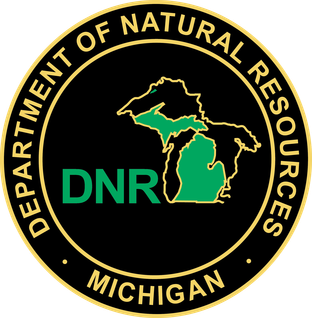CWD and TB Testing at Michigan Deer Check Stations

For 2023, testing will be focused in the northwestern Lower Peninsula
Chronic wasting disease is a contagious and fatal neurological disease that affects deer, elk and other cervids. In Michigan, the history of CWD in free-ranging deer dates back to May 2015, when the first case of the disease was confirmed in a free-ranging white-tailed deer in Ingham County. This marked the beginning of efforts to manage and control the spread of CWD within the state’s deer herd.
Since 2015, CWD has been detected in additional deer from various counties across Michigan. The state’s ongoing efforts have aimed at managing and containing the disease’s spread while maintaining a healthy deer population for both ecological balance and recreational purposes. The Michigan Department of Natural Resources and other agencies have implemented various measures to address CWD in the state, including:
- Intensive CWD testing efforts.
- Carcass movement restrictions.
- Ban on baiting and feeding practices.
- Targeted removal of deer.
- Public outreach and education.
- Research and collaboration.
- Regulation changes.
As we continue to modify the process to fit the current needs in the fight against CWD, many of the initial measures remain, and others are adapting using new knowledge and tools.
One of the most notable recent changes is in the strategy for testing deer. Historically, there has been a lot of testing in and around areas where CWD has been detected to date. This has led to detection of CWD in 12 of Michigan’s 83 counties, with Midland being the latest this summer. For more on where CWD has been found, see the County-level CWD detection information page.
Starting in 2021, the DNR began a rotational approach to testing for CWD around the state. With this new approach, a group of counties in the state is selected each year, with a desire to eventually test sufficient numbers of deer in every county across the state. The goal of this approach is early disease detection, as management has the potential to be most effective when the disease is caught early. Most of these areas have not had a CWD detection or have not previously been part of intensive testing efforts, so little is known about disease status in these locations. In 2021 and 2022, the rotational approach focused testing in the southwest and southeast parts of the Lower Peninsula.
For 2023, testing will be focused in the northwestern Lower Peninsula and in a few counties in other areas where additional information is still needed. The counties for CWD testing in 2023 include Antrim, Benzie, Charlevoix, Emmet, Grand Traverse, Hillsdale, Isabella, Kalkaska, Lake, Leelanau, Manistee, Missaukee, Osceola and Wexford. In these counties there will be drop boxes, staffed submission sites, and partner processors and taxidermists to assist with collection efforts.
In the remainder of the state, testing is available through direct submission by hunters to a cooperating U.S. Department of Agriculture-approved diagnostic laboratory for a fee or through free self-sample shipping kits in counties where CWD has previously been detected.
For more information on chronic wasting disease, visit Michigan.gov/CWD.
The DNR also asks hunters to submit deer from the northeastern Lower Peninsula to be tested for bovine tuberculosis, a bacterial respiratory disease that impacts deer and elk.
Entire carcasses from deer displaying symptoms of CWD or TB will be collected and tested throughout the deer season, regardless of where they were harvested.
DNR deer check station hours, days of operation and locations will be limited. To find a deer check station near you, visit Michigan.gov/DeerCheck.




